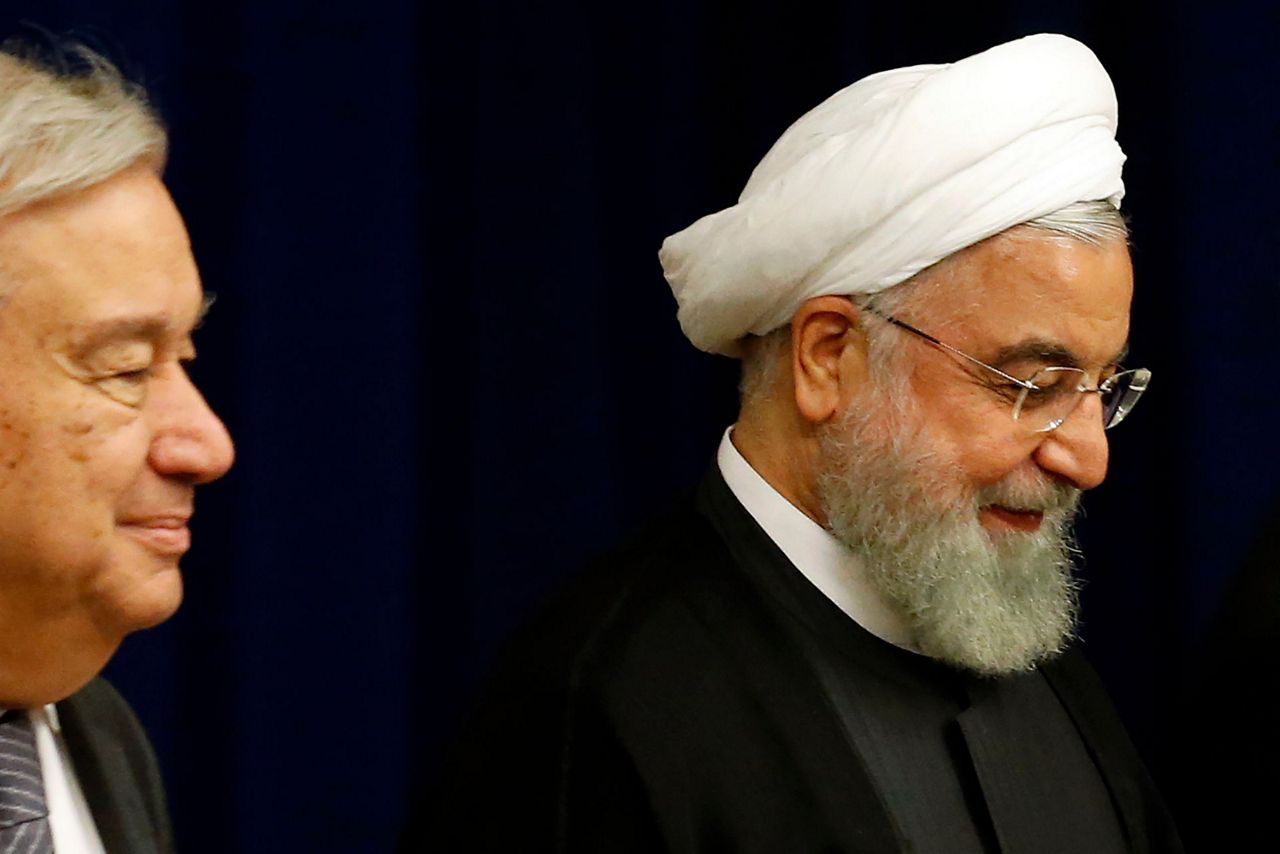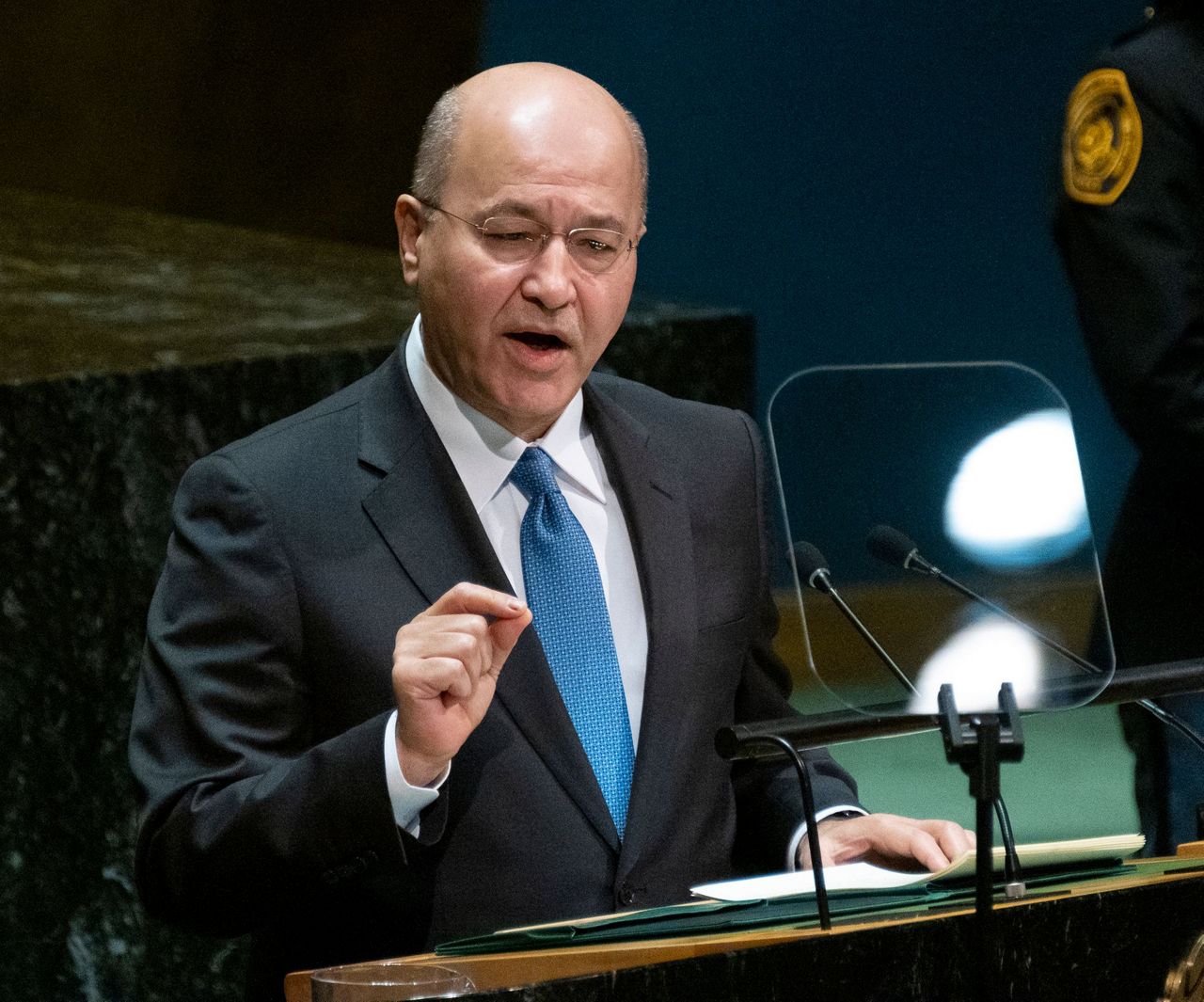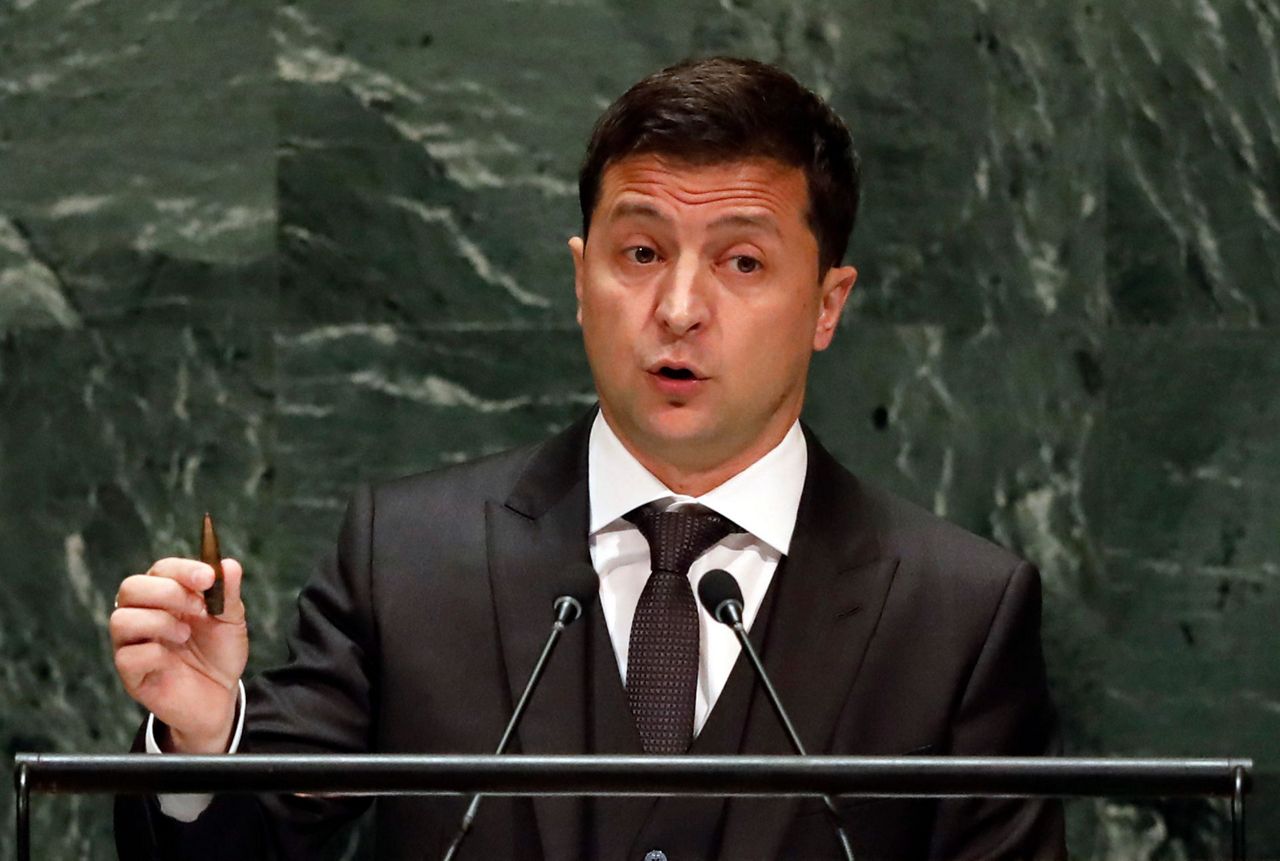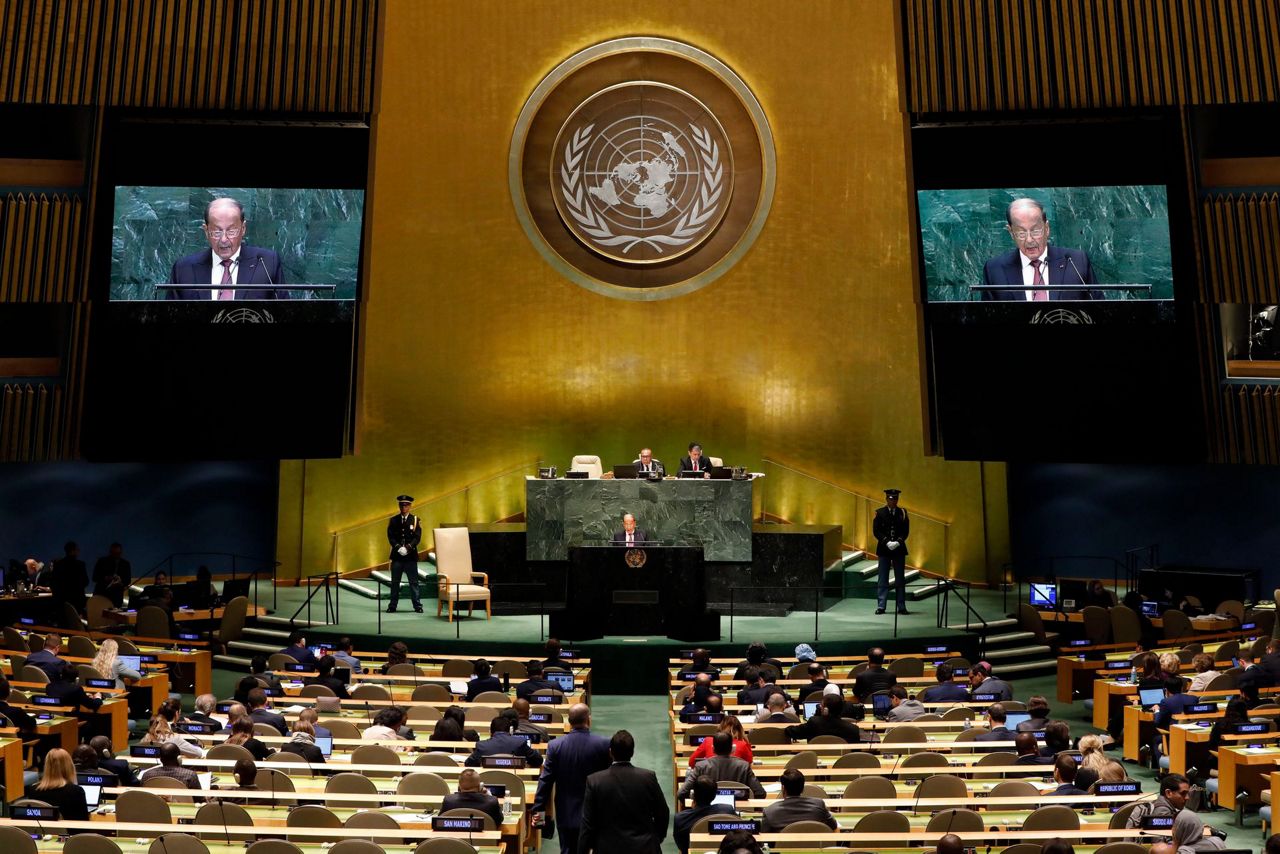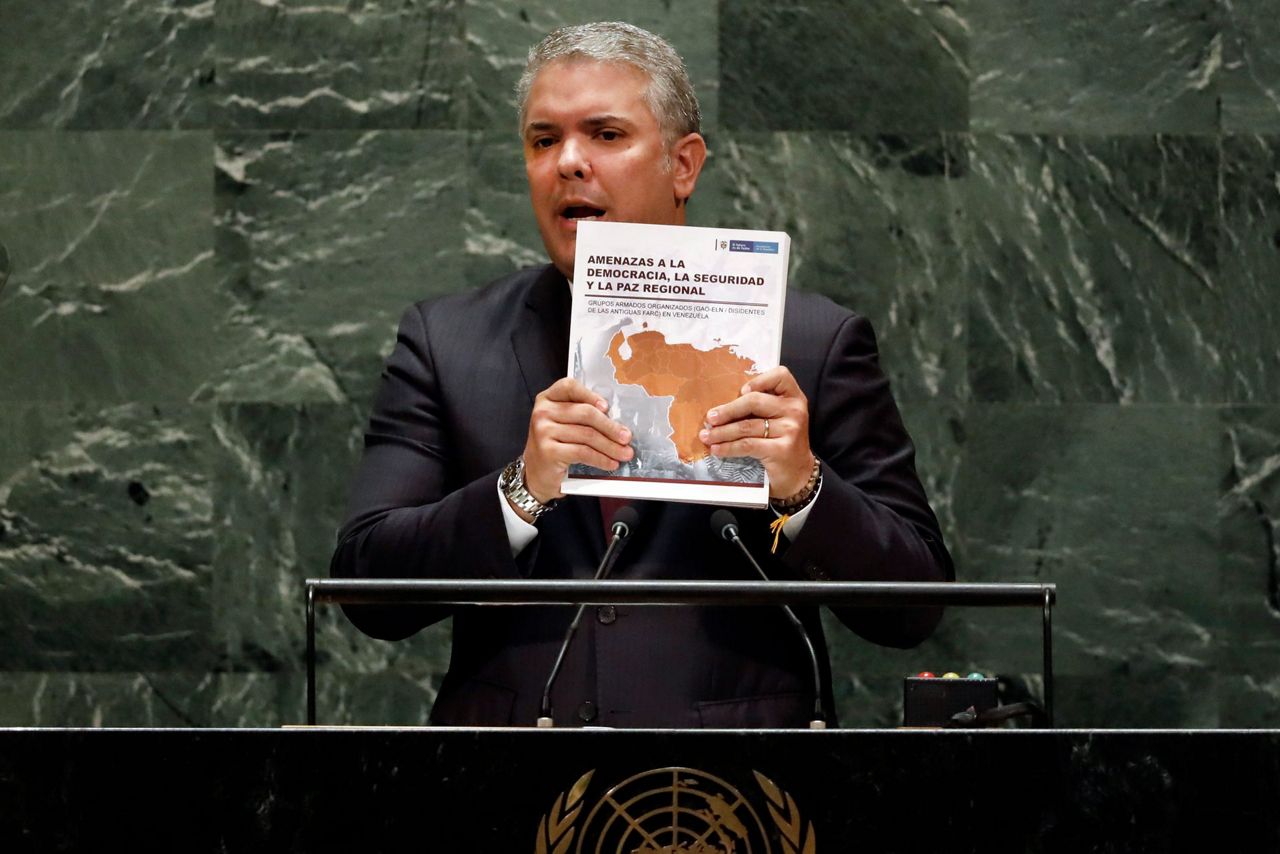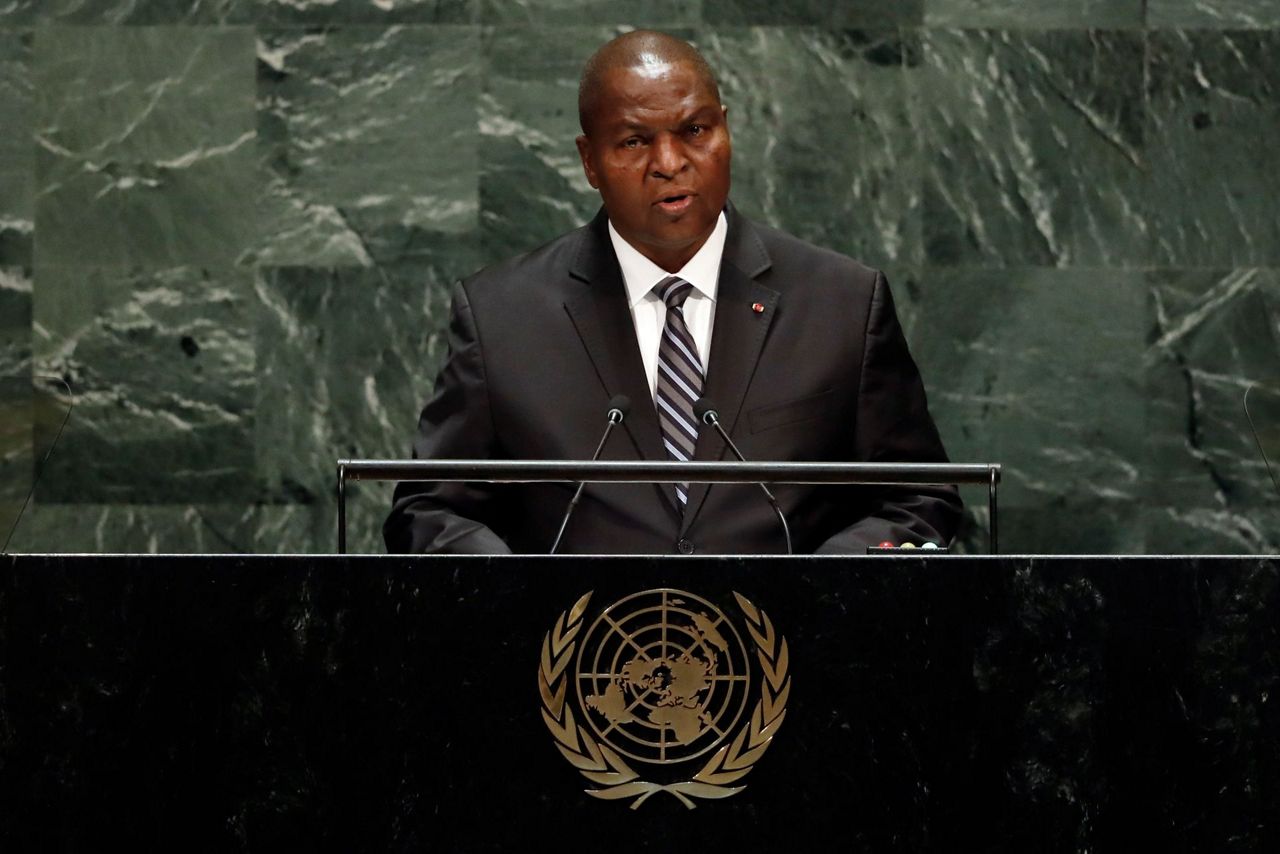UNITED NATIONS (AP) — Prospects for war and peace from the Middle East to Europe, Africa and Latin America dominated the second day of the annual gathering of world leaders Wednesday, reflecting the complex global landscape where conflicts persist and terrorism is spreading.
Iran remained foremost on everyone's mind, as leaders echoed Secretary-General Antonio Guterres' warning that above all, the world faces "the alarming possibility of armed conflict in the Gulf" with consequences "the world cannot afford."
The recent attack on key Saudi oil installations — which the U.S., France, Britain and Germany blame on Iran — has exacerbated the threat.
Iran denies responsibility and its president, Hassan Rouhani, made no mention of the Saudi strikes in his address to the General Assembly where he declared: "The Middle East is burning in the flames of war, bloodshed, aggression, occupation and religious and sectarian fanaticism and extremism."
Rouhani blamed the United States for fueling conflicts in Syria, Yemen and Afghanistan, and said Iran will never negotiate with the Trump administration as long as "the harshest sanctions in history" remain in place.
Rouhani urged American troops to leave invited countries around the Persian Gulf and the Strait of Hormuz to join a new collective security coalition based on two key principles: non-aggression and non-interference.
Iraqi President Barham Saleh, whose country is squeezed between powerful regional rivals Iran and Saudi Arabia, told the assembly he will not let Iraq become a battlefield for other nations' conflicts to play out.
He called the attacks in Saudi Arabia a dangerous development, but also stressed that: "Iraq will not be a launching pad for aggression against any of our neighboring countries."
Saleh bemoaned that Iraq has long been unstable but struck a positive note, saying his country was emerging from years of conflict and looking toward economic development.
Lebanon's President Michel Aoun called the Middle East "the constant flashpoint where temperature rises or drops but never cools down and our people always pay the price, with their security, stability, peace, economy and even demographic diversity."
He appealed to world leaders to help spur the safe and voluntary return of hundreds of thousands of Syrians who fled their country's eight-year war, saying their presence in tiny Lebanon has exacerbated its economic crisis.
In a highly anticipated speech, Ukraine's new president Volodymyr Zelenskiy addressed the global gathering for the first time amid a fast-escalating scandal involving a phone call between him and U.S. President Donald Trump. He made no mention of if, focusing instead on the horrors of war and his country's ongoing conflict with Russia.
Ukraine and Russia have been locked in a bitter standoff since 2014, when Russia annexed the Crimean Peninsula and threw its weight behind separatists in eastern Ukraine. Hopes for a solution to the separatist conflict, which has claimed more than 13,000 lives, were revived after Zelenskiy's election in April.
Ukraine seeks to "secure peace in a civilized manner," Zelenskiy told the assembly.
He called on world leaders on to help resolve the war, saying: "Every leader shares responsibility for the destiny not only of their country but of the whole world."
Addressing the situation in Colombia, where a 2016 cease-fire agreement ended more than a half century of conflict between the government and the country's largest rebel group, President Ivan Duque told the assembly that "peace with legality is firmly being built."
He hailed the work of 29 economic development projects involving nearly 2,000 former combatants with the Revolutionary Armed Forces of Colombia and lauded the commitment of 13,000 former guerrillas to the peace process.
But he accused neighboring Venezuela of offering a safe haven for "criminal groups and narco-terrorists" belonging to a smaller Colombian rebel group, the National Liberation Army, that has not signed a peace agreement.
With a copy in his hand, Duque said he will give the General Assembly a 128-page dossier which he said has "authoritative and overwhelming" proof that Venezuelan President Nicolas Maduro's government is aiding terrorist groups plotting against Colombia.
Turning to one of Africa's nastiest conflicts in the Central African Republic which has been wracked by interreligious and intercommunal fighting since 2013, the country's president touted the signing of a peace agreement between the government and 14 armed groups in February.
President Faustin Archange Touadera said the situation "remains fragile in spite of some genuine progress" in extending government authority throughout the country and reforming the security and defense sectors.
"Armed groups continue to be supplied with weapons and ammunition through illicit routes," he said, urging the total lifting of a U.N. arms embargo that was eased earlier this month.
Looking more broadly at the world, Touadera said, "as long as one of our member states is not at peace, the entire community of nations is affected."
He added: "The challenge that we face as leaders is to have the courage to dare, to dare to question ourselves, to find innovative, efficient and effective solutions, to build peace and stability and to create a robust foundation for sustainable development."
Copyright 2019 The Associated Press. All rights reserved. This material may not be published, broadcast, rewritten or redistributed.



